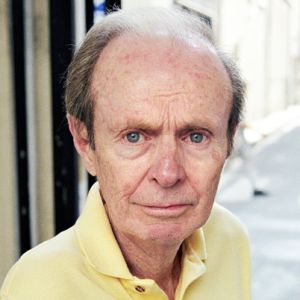A Quote by Cate Blanchett
We've enshrined the purity, sanctity, value, and importance of bringing children into the world, yet we don't discuss death. There used to be an enshrined period where mourning was a necessary part of going through the process of grieving; death wasn't considered morbid or antisocial. But that's totally gone.
Related Quotes
The most important part of the process of mourning is regularly reciting kaddish in a synagogue. Kaddish is a doxology, which Jewish tradition has mandated children to recite daily in a synagogue during the year of mourning for a deceased parent and then on the anniversary of his or her death thereafter.
Solitude is used to teach us how to live with other people. Rage is used to show us the infinite value of peace. Boredom is used to underline the importance of adventure & spontaneity. Silence is used to teach us to use words responsibly. Tiredness is used so that we can understand the value of waking up. Illness is used to underline the blessing of good health. Fire is used to teach us about water. Earth is used so that we can understand the value of air. Death is used to show us the importance of life.
Being an artist doesn’t take much, just everything you got. Which means, of course, that as the process is giving you life, it is also bringing you closer to death. But it’s no big deal. They are one in the same and cannot be avoided or denied. So when I totally embrace this process, this life/death, and abandon myself to it, I transcend all this meaningless gibberish and hang out with the gods. It seems to me that that is worth the price of admission.
There is another side to death. Whether death happens through an act of violence to a large number of people or to an individual, whether death comes prematurely through illness or accident, or whether death comes through old age, death is always an opening. So a great opportunity comes whenever we face death.
Bob Dylan seems to me a totally pernicious influence - the nasal whine of death and masochism. Certainly, this would be a more cheerful world if there were no Dylan records in it. But Dylan and his audience mirror each other, and deserve each other; as Marx said, a morbid society creates its own morbid grave-diggers.
We tend to suffer from the illusion that we are capable of dying for a belief or theory. What Hagakure is insisting is that even in merciless death, a futile death that knows neither flower nor fruit has dignity as the death of a human being. If we value so highly the dignity of life, how can we not also value the dignity of death? No death may be called futile.
Misunderstanding may arise by confusing the Buddhist and scientific definitions of death. Within the scientific system you spoke quite validly of the death of the brain and the death of heart. Different parts of the body can die separately. However, in the Buddhist system, the word death is not used in that way. You'd never speak of the death of a particular part of the body, but rather of the death of an entire person. When people say that a certain person died, we don't ask, "Well, which part died?"
Small things such as this have saved me: how much I love my mother — even after all these years. How powerfully I carry her within me. My grief is tremendous but my love is bigger. So is yours. You are not grieving your son’s death because his death was ugly and unfair. You’re grieving it because you loved him truly. The beauty in that is greater than the bitterness of his death.
On a more personal note we in this country we have a very tragic situation occur at one of our universities and, it really has taken the country aback and there's a real grieving process that we're going through, And going through it mourning and learning about the victims and-learning about it and showing our support, you know, I hesitate to say, how does your country handle what is that type of carnage on a daily basis?
God is not calling us to win the world and, in the process, lose our families. But I have known those who so enshrined family life and were so protective of "quality time" that the children never saw in their parents the kind of consuming love that made their parent's faith attractive to them. Some have lost their children, note because they weren't at their soccer games or didn't take family vacations, but because they never transmitted a loyalty to Jesus that went deep enough to interrupt personal preferences.
Culturally, now, we're really tight around death, and as a result I think people miss out on a lot of the beautiful aspects of the end of life process that can be very helpful for the grieving process, that can be a really beautiful part of transition of life that we don't get to experience because it's not in the conversation.



































